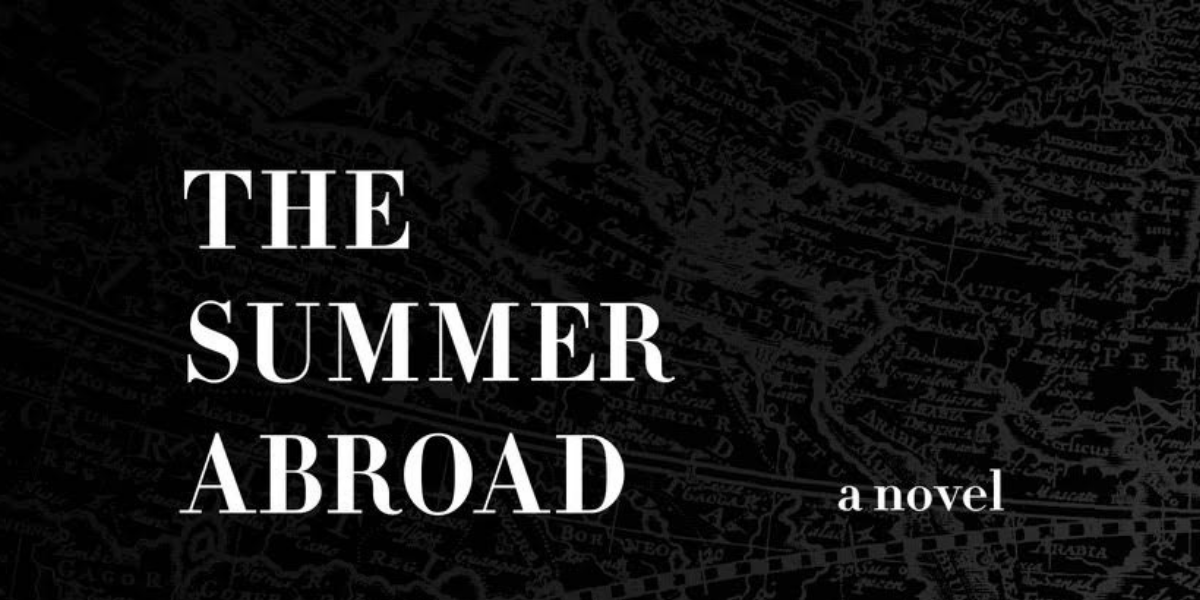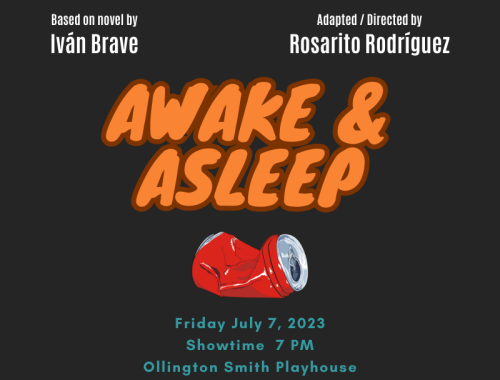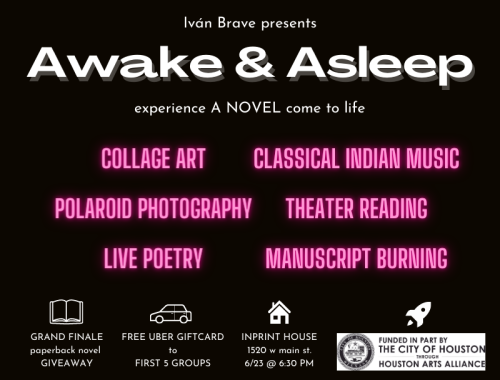The Summer Abroad — now available on KINDLE. Purchase here.
Did you buy it? Good. On the fence? Let me tell you a story. Perhaps it’ll help you make up your mind. So, storytime. Gather ’round the fire.
(Wood crackles. Embers spark. And a wolf howls in brisk autumn air.)
In 2013 I graduated from the University of Texas at Austin, along with 9000 fellow longhorns. Some of you graduated that same year too.
It was fun, that hot day in May. But I couldn’t wait to get away. With two friends, a couple of backpacks and the desire to gtfo, we journeyed through various countries, over the course of a summer abroad.
At the time, thrilled by new experiences, living a moment that at the time already felt unforgettable, completely intoxicated, in love with life and what unknown pleasures it had to offer for those who take the jump, I thought I would never come back, never return. But I did. I returned to Austin. Waiting for me was a room in a house full of friends. Soon after I got an internship, later a job, and things settled back down.
In the hangover of that trip abroad, in the wake of so many undeniably once-in-a-life-time moments, in the stillness and tension of a town which no longer seemed right after graduation, there existed for me little else but the need to make sense of what had happened. I was, simultaneously, writing stories for a music radio station, and selling tickets for the big non-profit theater in town. Much peace led to many an introspection. It felt like “if I am going to come back to the United States, which I did of course, then it had better be worth it.” Slowly, night by night, one box of pizza and a gas station bottle of wine at a time, before a trusted keyboard, my roommates’ coffee not far away, I started putting together thoughts, one word at a time. What started as “what I want my life to look like” essays to myself, became “how can I pull together my skills to best perform my duty as a member of society” mind-maps, which soon turned into “what the hell am I good at anyway?” rants, and eventually “ok seriously what do I want out of life?” evenings staring at the white bespeckled gray plaster ceiling overhead. Books. Internships. More work. Parties. I wrung out of everything I could a something I didn’t know just yet what it was. The it was eating me up inside. And needed to be fed.
Philosophy degree. Passion for music. Radio experience. Family calling me. Friends dropping by with a six-pack. Everyone has the same problem. Everyone has different advice. No one has the solution. How was I going to figure it out?
I started to write.
A single page led to a few more, a document with chapters, then some more pages led to other stories, and so on and so forth. For a few months, these projects led nowhere. Still, it got to the point where enough movies and enough books and enough music and enough videos online were all pointing at the thing inside of me, that inside which had always been the same, and that everyone and everything pointed at.
A one single driving pulse between my temples: write.
Funny that word, when one voices it, how air grinds the palate, the tongue juts forward as if to strike a match that could ignite, cheeks shaken when really stressing the word: write, write, w-r-i-t-e, a clear slap at the end for the “t.”
February 2014. The bats hadn’t come to haunt the Congress Bridge in the center of town yet, but the air was crisp, ready to take shape in anyone. (Write.) On the Road, on the road, on the road, I read On the Road on the way to work, on the bus, on the way to my bullet-proof glass protected ticket representative position, at the big public theater I mentioned, on the south end of the bat bridge. The minute I closed the book, done, I looked up again, at that white bespeckled gray plaster ceiling overhead. I looked out at the green (were they cherry wood trees?) leaves raking against the window of my bedroom. Rake, rake. I opened my laptop and began to write:
A Summer Abroad.
Like any other. It was a memoir, written a la Kerouaquian, no chapter breaks, no paragraph breaks, no breaks at all, no punctuation, no rereading, just flow. My hope the entire time, what never changed, was the desire to give of myself, to create something of value, useful, insightful, self-aware, awakening. This was how I wrote.
Until, I typed “the end.”
Finally, only then, did I reread, edit, move things around, yadda yadda. Since 2014, I have worked with an editor, twice, changed the title, workshopped chapters as part of an MFA program, added and subtracted details, made things up, made things more believable, italicized a few phrases that didn’t belong to me, italicized and made bold some things that were actually mine, shared it countless times, sent it to competitions, pitched it to agents and presses, submitted chapters to magazines, everything short of publishing it myself. Today what is left, in a word, is . . .
: a novel.
One unlike any other. “Semi-autobiographical,” if we must. But new. A novel that plays with form, mixes languages, and entertains as much as it explores. You can read more about it here, on the Amazon page.
(Pause) Boys and girls, do you hear that crackling wood, those sparkling embers, the howling of the wolf in the brisk air?
If not, let me add to your imagination, a little outro pirouette with style, in the manner of a man whose bold prose emboldened me, Monsieur Jacques Kerouac, citing the “Essentials of Spontaneous Prose,” a UPenn online public document written by the man himself, and an excerpt from his oeuvre. Woosh! Title, metadata, and an excerpt from my small book is below.
The Summer Abroad: a novel (El viaje de egresados)
Set-up: In May 2013, three Texan musicians backpack across Europe. In an oyster-shell, they leave from what’s considered home, only to come back knowing what home is and isn’t.
Procedure: Buy ticket to Amsterdam. Amsterdam, enjoy the greenery. Train to Brussels, ensue romance. Paris, of course, city of love, discuss love and language. La Loire river valley, nothing but bike trails. Bordeaux, wine, gay bar. Ferry rides in the Mediterranean. Italy, with all its confusion, leads to pain and realizations. Geneva, Bern, all too perfect. Munich, wanna punch someone in the face. Prague, the yin to the yang of Munich. Berlin, not the end. Amsterdam, as all things come full circle in books. But they keep going, to Barcelona. Historic, apocryphal, enlightening. End in heaven, home. Austin?
Method: Written in bursts — so story should be read accordingly. Rewriting, though, was painstaking — rereading, thus, must be equal, for best results.
Scope: Themes include but are not limited to–travel, pop music, language, friends and family, romance, but not genre at all but form of its own, decidedly so, blank pages were used in the making of this book.
Lag in Procedure: zero, nil, zero.
Timing: Why is this book relevant today? Because I said so. Nay. Say is unsatisfactory. Search google for information on the rising number of Spanish speaking natives seeking representation of self in art or art world, here is it, a book that speaks to and speaks with the language in common: spanglish: in a time when America has yet to define itself, or else denies old postulations dictating what is and isn’t “American” — here is a New American thesis, this book, its characters, bound by narrative, for your reading pleasure. In pleasure we trust. Through pleasure we understand. There is pain too, to measure. All in due time.
Center of Interest: Your eye, moving left to right, will fall forward. What do you seek from a story? It is here. What do you expect from a story? This is here, as is the thwarting reversal of said expectation. What does literature do, focus you, interest you, involve you in a world much like your own, sometimes, or not, but point being you shall invest time (and money) for a return–gasp–here is the theme, again, remember: Home.
Structure of work: memoir could not contain, genre-fiction confined too much, creative non-fiction felt too frivolous, there wasn’t enough time for poetry, so the only logical expansive enough piece of land in the real estate of literature left was a little old pretty category tucked in all corners of all libraries and book stores: novel. Freedom is the novel’s primary function, derivative, and service to mankind. To be completely new, if the novel isn’t, then what is?
Mental state: To quote beta-readers . . .
“5 thumbs up, I’ve never thumbed up harder in my life.”
“I cried in my cubicle to this book.”
“While reading TSA, I did all of the below:
“–laughed (hard)
“–cried
“–got wet
“–got happy
“–got depressed
“–felt young
“–felt old
“–hated Mikail
“–loved Mikail
“And a full spectrum of emotions.”
from PART II, Chapter 1, “A Sweet Louie Lullaby”
“You hear that?” Rick asked.
“What?”
We closed our eyes.
“The city’s sounds,” he said. “It’s like the audio sample for ‘bustling city’ in a video game.” Trams clicked and clacked their way north, south, east and west. High fashion stilettos tapped over stone. Courtly businessmen, red-eyed gangsters, and plump tourists conglomerated, precipitated, and appropriated over phones, the cobbled streets, and to themselves. Bike bells stuttered and boat-speakers zippidy-zipped under our toes and under bridges. Then we added our own sounds, the sounds of chewy sloppy kebabs—the first of many—the mastication of which cued the bonus track of aimless wanderings and happy happenings. Quick, quick, we probably swung by the city too fast, to be honest, probably skimmed a bunch, but at least we were learning something. At least we spent some time in the city. Two days, sure, but that’s better than nothing. This was a trip about travel, not about any one city, or any one moment, but about family, friends, making friends, making families. This eased the lame feeling of vagabond that made us sweat for having to leave so soon. We accepted the fact that it takes a lifetime to domesticate a stranger in a foreign land. And it takes multiple lifetimes to tally each and every brick in Amsterdam. But the correct reply isn’t “Why bother?” or “I’ve counted more bricks than you.” No. The correct reply is “Welcome to my brick home. You may stay as long as you like. No need to pay me back, between us there’s no spite. Simply share your story, or listen to mine. And in time we shall see, the world fares not beneath us, but for you and me.” And like that, with a few days of survey and active imagination, going back to bricks, you can whip up a well-crafted story involving each one, with conclusions such as Straw and Wood piggy must have immigrated to Holland after the Big Bad Wolf blew their house down. Here lives the hero, Sir Bricks. Van Gogh, from that joke, got some kicks. “Hi” sir. Yes, it’s funny. “Hi, how are you?” Quite el chiste. Enjoying the high culture are we? Hm, that’s nice, ‘fcourse, ‘fcourse. Random, left and right, then a narrow alleyway that took us under unique apartments with balconies housing stunning flowers watered by gorgeous Dutchesses, awe, and aw yeah, who watered their plants in skirts up above, who rained quartz-clear water over those flowers’ long, purple, white and yellow petals, string-like the vines, those wet and hanging vines, hung off the windows of many skinny balconies divine. Life was everywhere, vibed to the beat of the bustling city, erupting in concentric circles toward us, past us, and again, and again, and to it we surrendered. Stopping at a smoke shop on the way back, we split an eighth of White Widow, that poisonous spider. “Think that’ll be enough?” I asked, unsure if the grass here in Amsterdam was natural or bred.
“Nah,” Rick said. “Imma buy another.”
The Talking Dog’s smoke lounge welcomed us warmly again. We joined a crowded table of rowdy Germans and got to rolling jays on jays. The group passed papers, roaches, stories, and beers. Among us sprung talk of shooting pool down the street at the happy-hour bar around the corner. Rick was heavy high, and so was I. We told the group we were seven hours behind, on a lag, and had to nap before venturing out. Our watches read eight-something when we stood and said we’ll be down before the end of the hour.
“All right, you boys,” said a German with rimmed glasses and fingerless gloves. “It is a quarter passed twenty. See you in precisely forty-five minutes.”
Rick fell face-first over his pillow, while I climbed cold bars to my top bunk—still dressed—and shut my eyes into the folded bed sheets at the head of the bed, yet unmade. A canal of consciousness sang me a sweet Louie lullaby, with clouds of white, and so much to do, at the end of the dark sacred night, with so little time. One summer’s fine, maybe stay longer, forever, and ever. Can’t think about school, won’t think about work. A trip is a trip is a trip, and taking off, landing, too. Nice time to fly, nice time to sleep, hold his hand, it’s a man in too deep; look around, hear babies grow, they’ll learn so much more, but we’ll never know. And I think to myself…
The Summer Abroad — now available on KINDLE. Purchase here.





Pingback: Robert’s Roundup of Ebooks (Nov 2018 — Week 5)